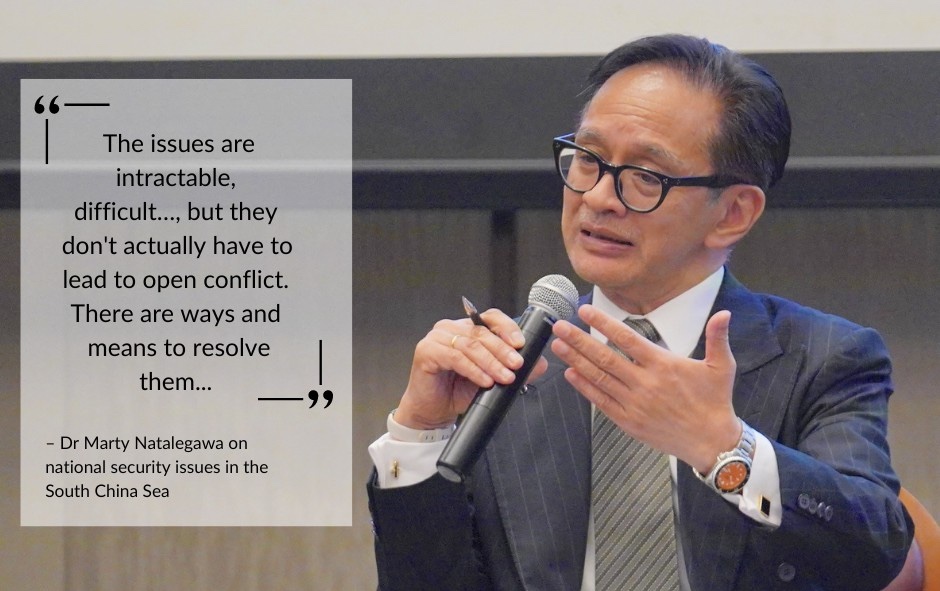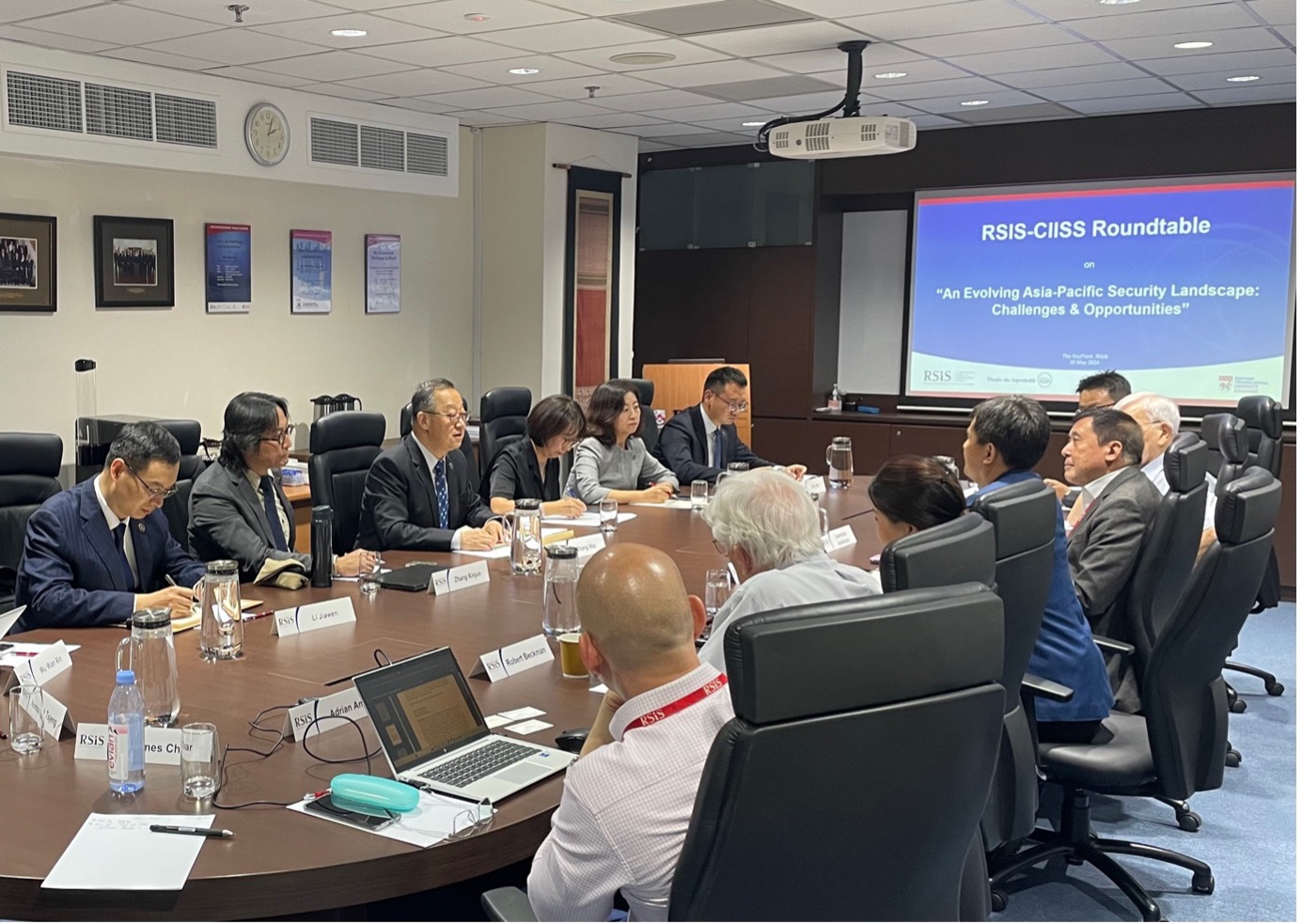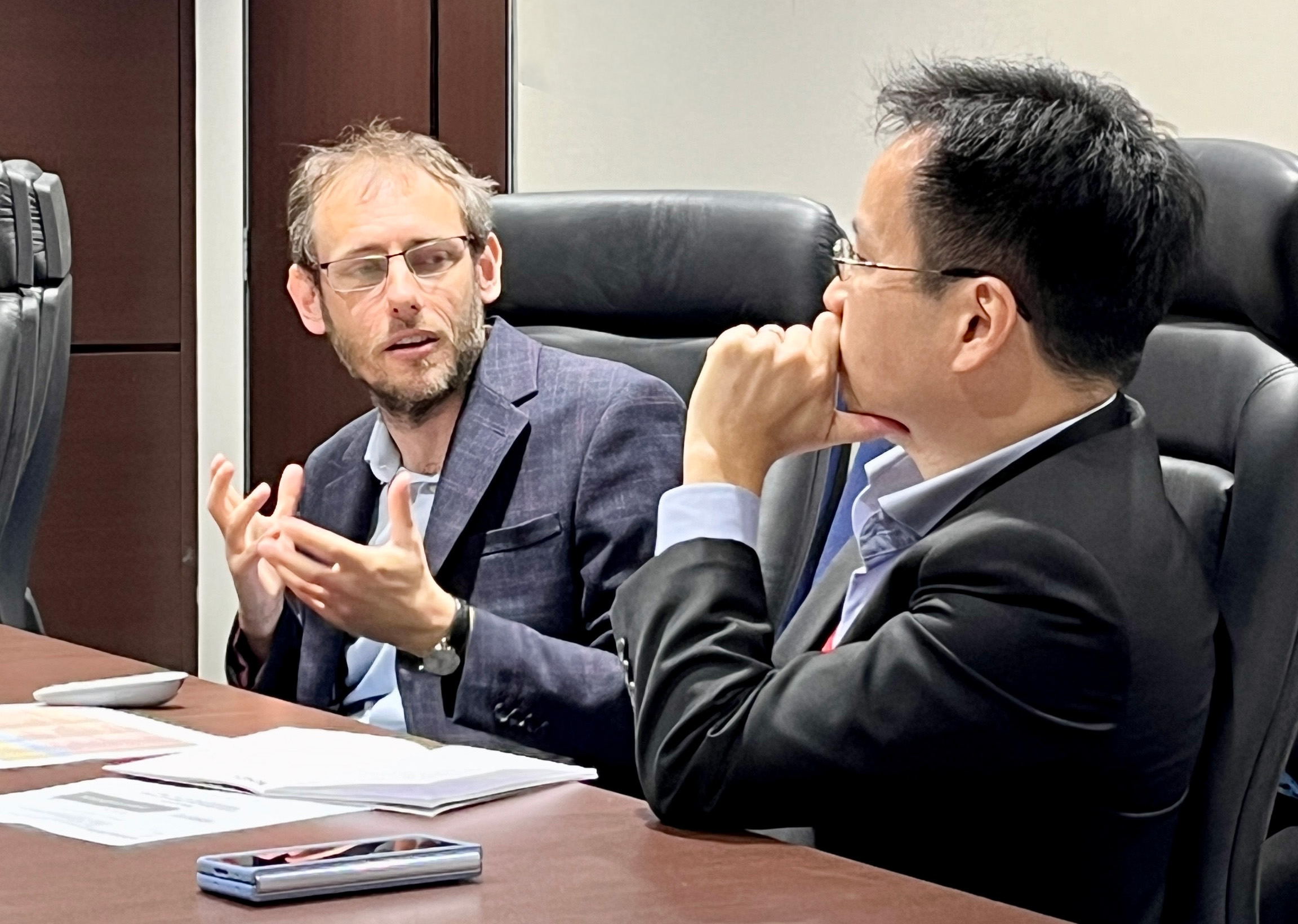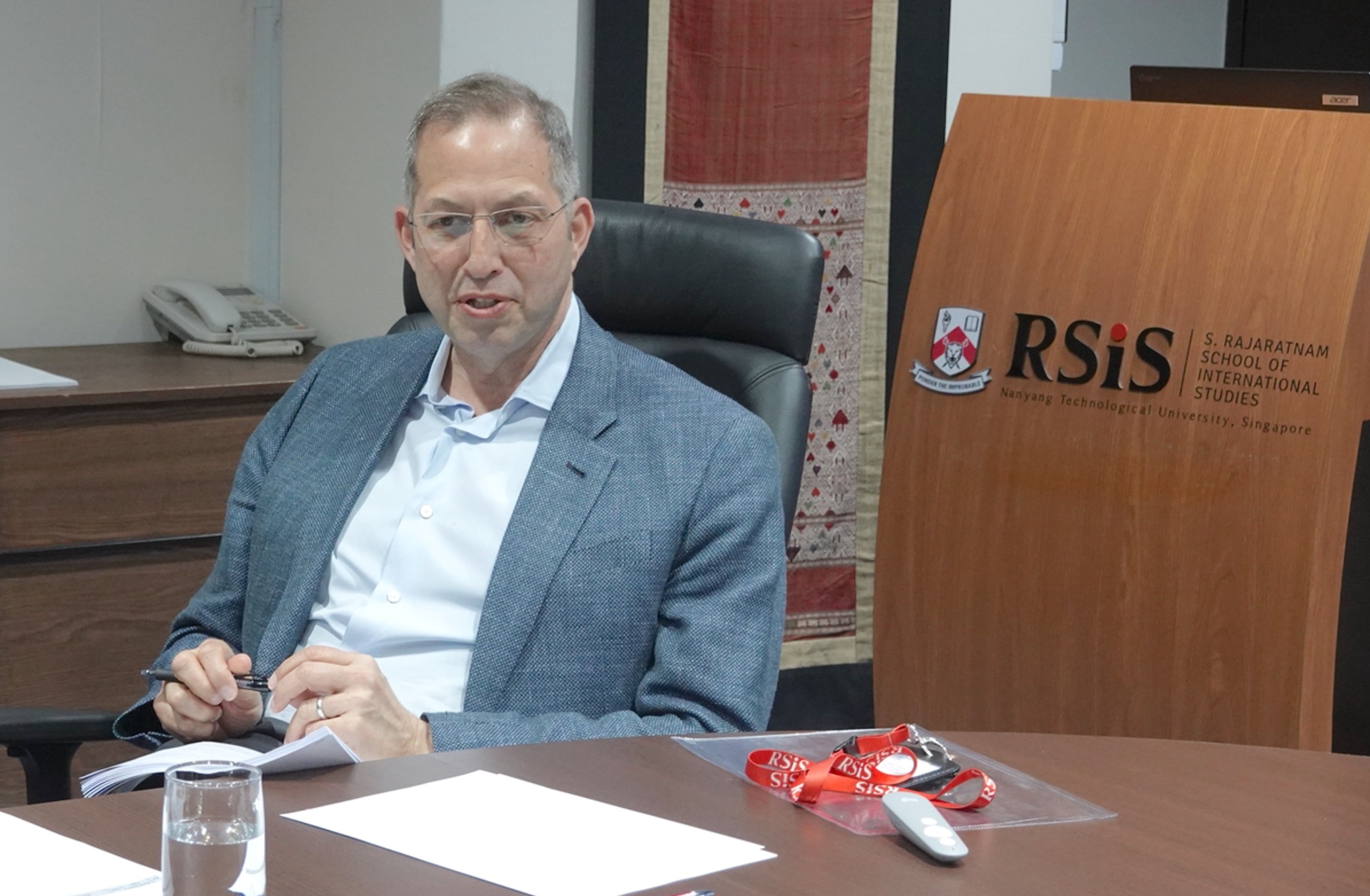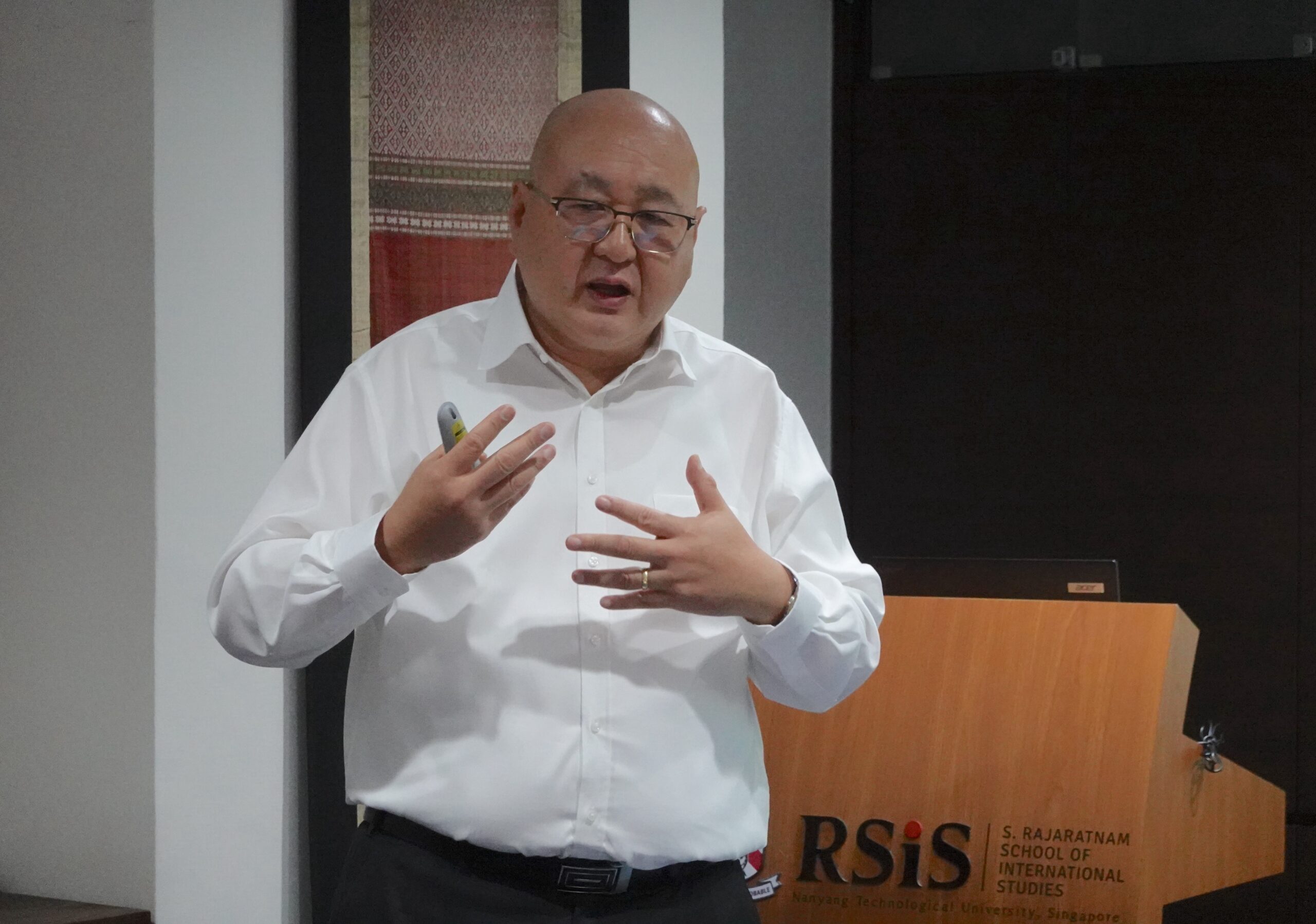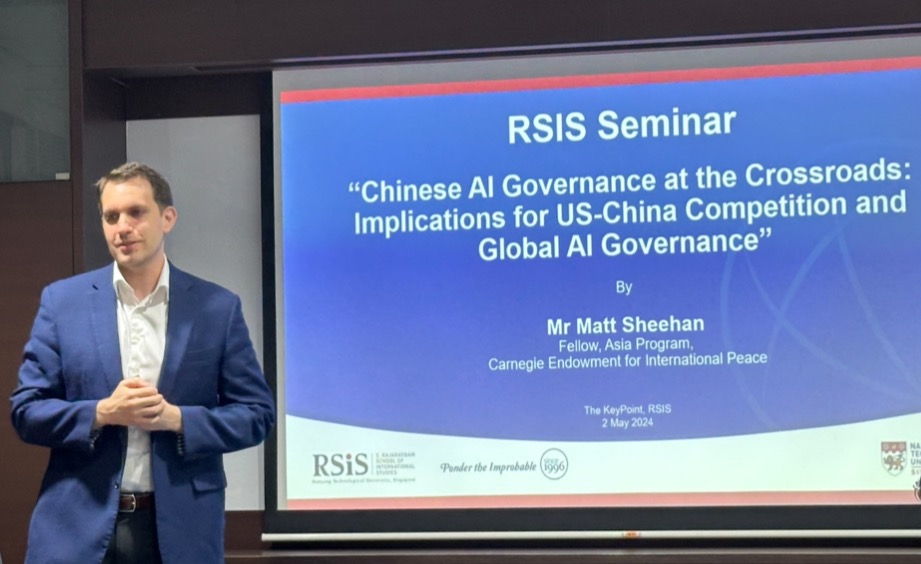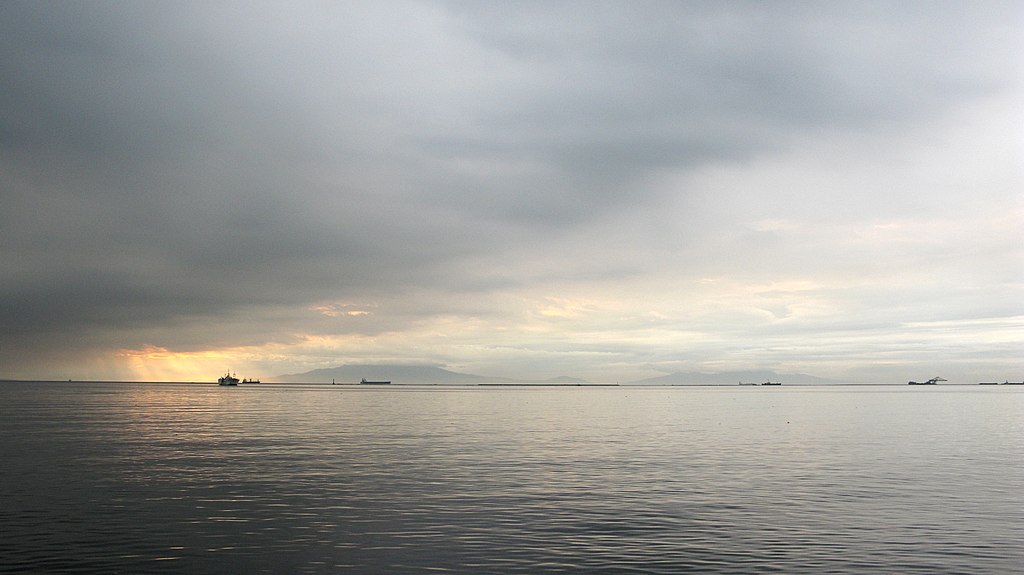
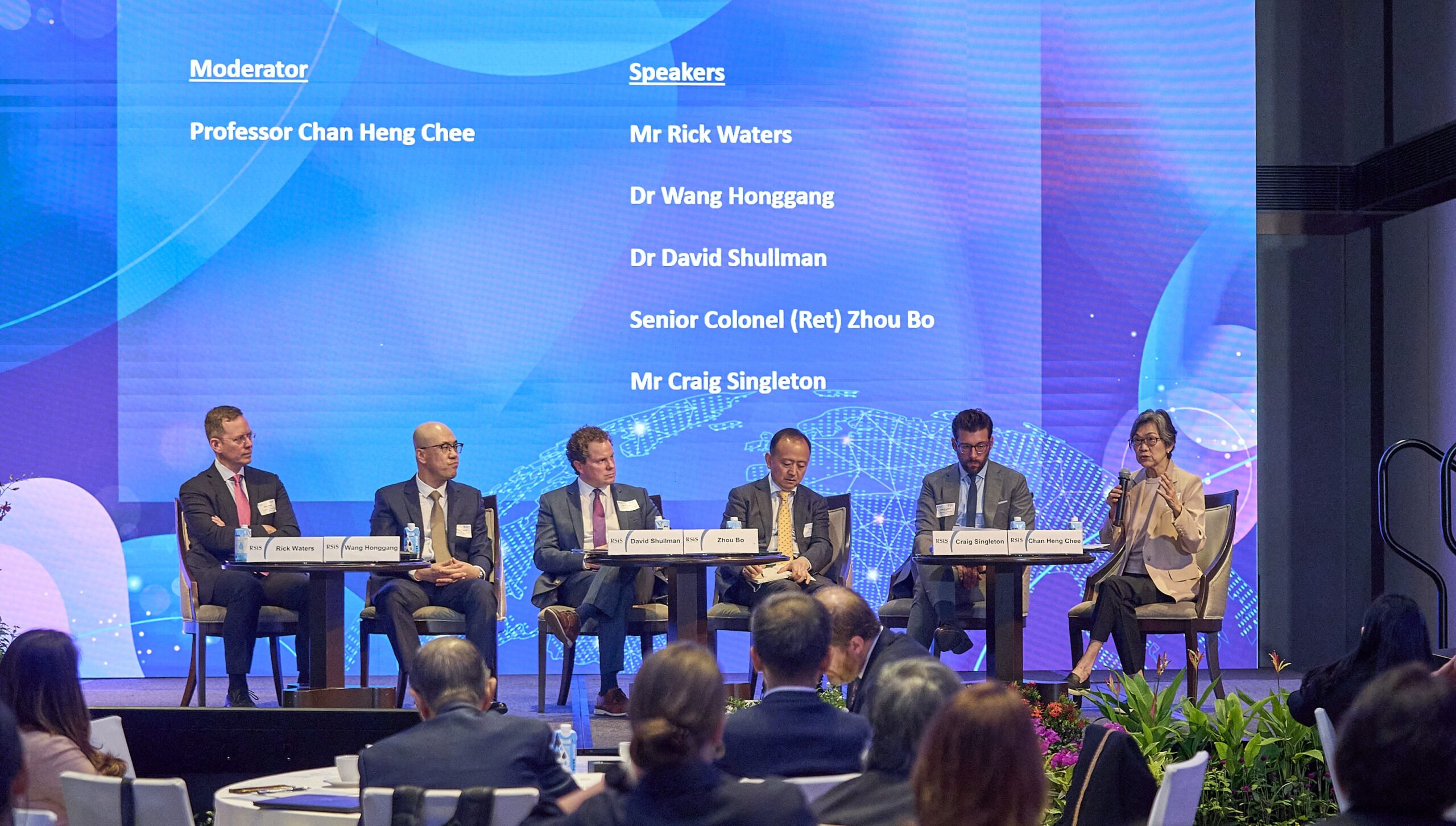
RSIS held the 5th Trilateral Exchange on “Rising to the Challenge: Global Leadership in a Fractured World” on 23 April 2024. Scholars from United States and China were invited to discuss and re-examine what global leadership means in today’s world, given the increasingly complex relationship between both states.
During the four-panel discussions, American and Chinese participants acknowledged that bilateral relations between the two had experienced freefall amidst intensifying competition and shifting global trends. Issues of security and nuclear development were particularly of concern, and the participants highlighted a need for constructive dialogue and open communication to navigate common interests and shared challenges. American participants called for more transparency from Chinese counterparts and encouraged China to be more realistically engaged in the international order so as to work towards global issues. Meanwhile, Chinese participants pointed out that the United States saw China as an active competitor and a threat to its hegemonic position – which had made the bilateral relations more tense. Instead, there should be respect for different political systems in the pursuit of development.
The discussions also highlighted the need to consider Southeast Asia in its own right rather than solely within the context of US-China competition. It noted the potential role that ASEAN could take in helping to find common ground. For instance, ASEAN’s engagement strategies, such as initiatives like the ASEAN Regional Forum and the East Asia Summit, have effectively facilitated multilateral discussions with global powers.
Among the key lessons from the trilateral exchange was that although relations between the US and China were difficult, there was a need to understand perceptions and respect the different opinions of both sides. Establishing communication channels and loose conceptual agreements at leadership levels, coupled with policy adaptations, might be ways to establish a stable framework.






